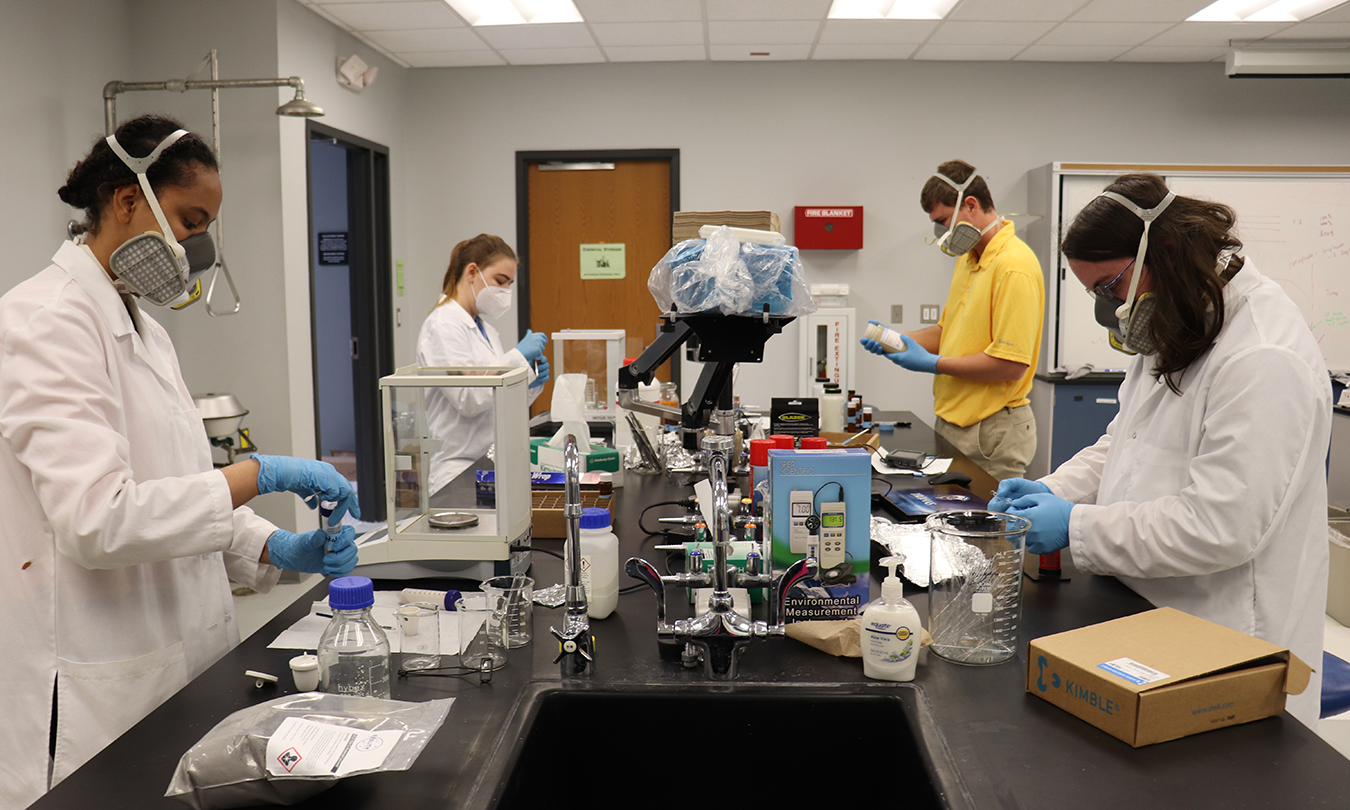DSU students conducting astrobiology research
July 8, 2020

Four students are currently conducting astrobiology research under the leadership of Associate Research Professor, Dr. Michael Gaylor, who serves as a lead investigator for the National Science Foundation’s EPSCoR program.
The EPSCoR program builds training, infrastructure, and talent in the areas of Science, Technology, Engineering, and Math (STEM) in underrepresented states. Dakota State received a five-year grant to conduct research through EPSCoR.
Christina Mulu, sophomore chemistry, mathematics, and computer science major from Ethiopia, was a part of Gaylor’s research team during the school year as well. She particularly enjoys the ability to improvise in research and try new things. “It’s fun to figure out the best way to conduct an experiment.”
“The most interesting part of research is that we come up with different questions every time and have different results to decipher and explain from each of the experiments,” she added.
Jared Dewitt, a sophomore chemistry major from Colman, S.D., is spending his second summer working in Gaylor’s lab, performing experiments to determine how non-living chemistry could transition to living chemistry.
Dewitt enjoys the newness of the research they are conducting. The experiments they conduct do not have predetermined results, so everything they are working on allows them to learn new information, he explained.
Christina Maloney, a junior biology and chemistry major at Iowa State University, is also spending her second summer in Gaylor’s lab. Maloney appreciates the opportunity to gain experience in research that will help her with her future. She is currently applying to veterinary schools.
“We’ll present our results at the end of summer, and I’ll gain some skills from that,” she said. “I haven’t presented before in a conference setting.”
Sammy Drummond, a senior physical science major from Melbourne, Australia, never expected to do astrobiology work, but due to the similarities of science research, knows the benefits of gaining any and all experience in the lab.
While working on another experiment, Drummond wondered if the sun’s rays can convert chemicals common on Earth and throughout our solar system into chemicals that are essential for life today and that scientists believe were important for jumpstarting life on Earth some four billion years ago. He designed and conducted a simple experiment outdoors on the Dakota State campus and discovered that the sun did in fact produce biologically important molecules known as quinones. “Sammy’s experiment produced amazing results in a very short period of time, which rarely happens for undergraduate researchers,” Gaylor said.
Drummond will be continuing this research with new experiments. “It’s a little bit daunting, especially with the time limits of summer,” he said. “What we’ll be doing over the next couple of weeks is testing different sunlight exposure times to figure out how much of these biologically important chemicals are produced over several day-night cycles.”
All four students will be contributing authors on two research papers Gaylor will submit to the International journals Astrobiology and Origins of Life and Evolution of Biospheres.
Gaylor and his research team will continue to study the chemical compounds and minerals that, in certain environments, undergo chemical reactions that produce molecules essential for life, as they continue to study one of science’s biggest questions, how does life happen?
